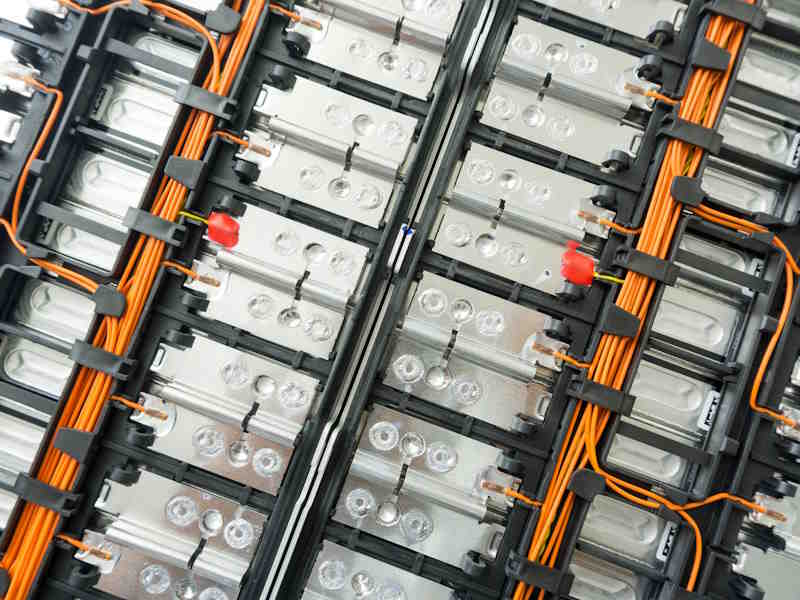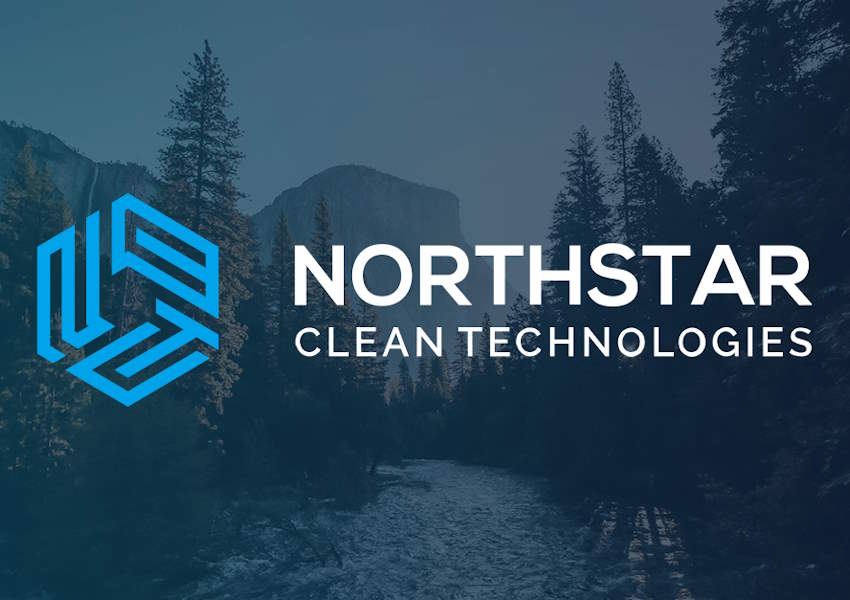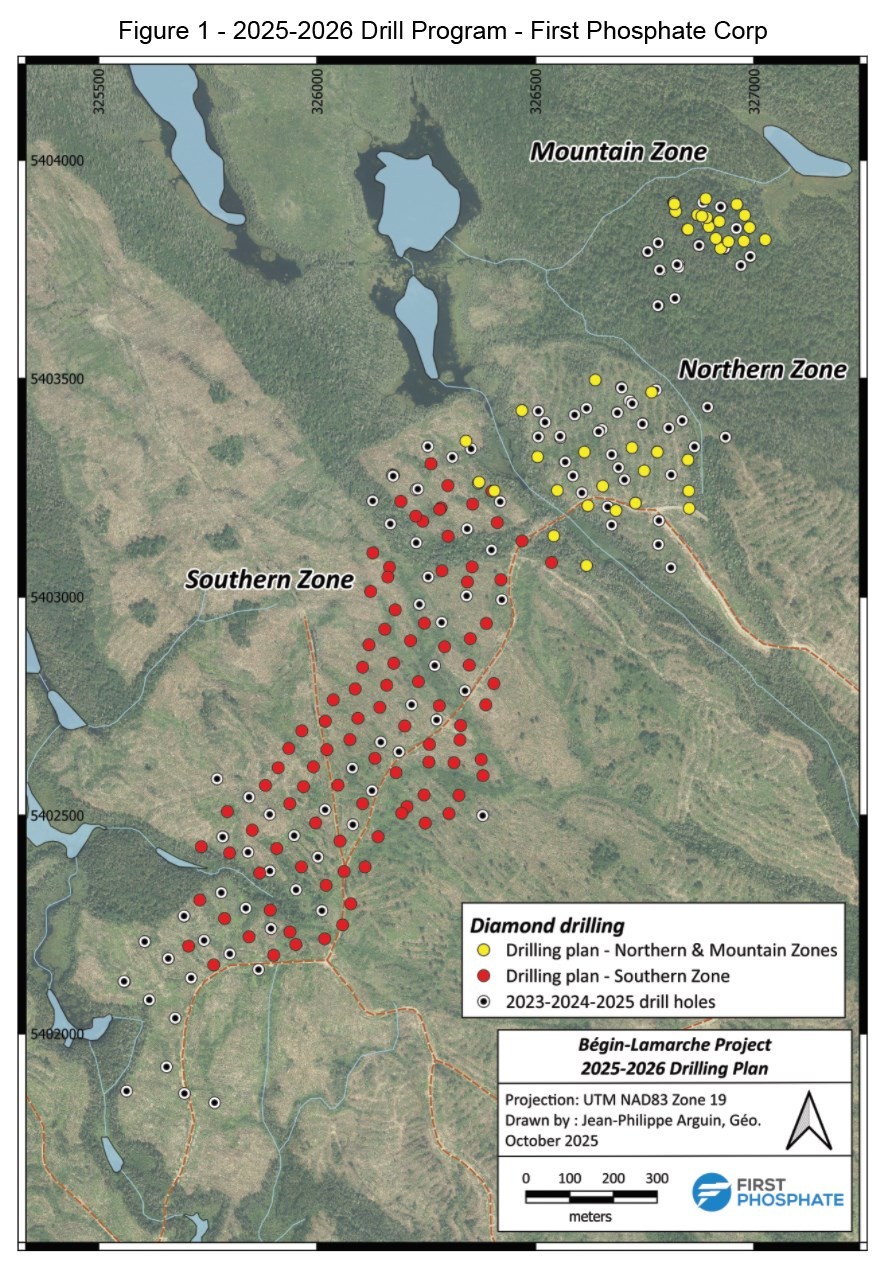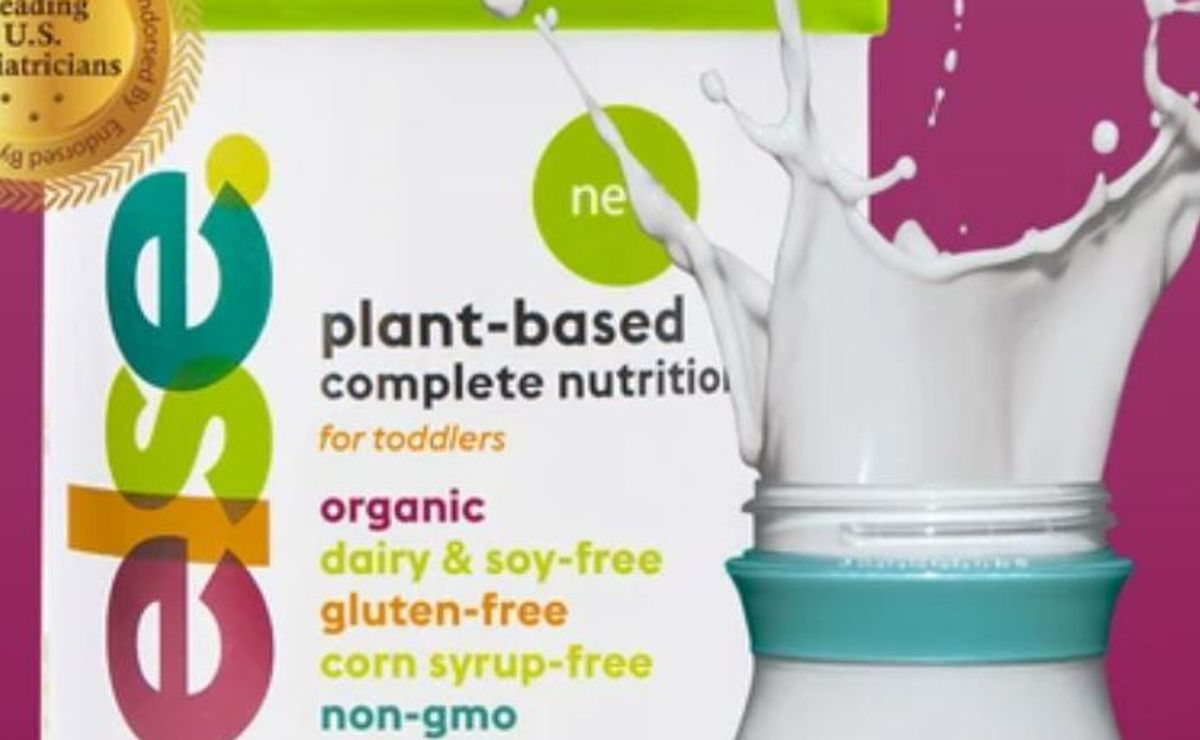Plug Into More Green Stock News
Tap into the pulse of emerging green sectors every morning. Top daily headlines from clean energy, cleantech, cannabis, and sustainable transport stocks:
E3 Lithium Outlines Clearwater Project Pre-Feasibility Study and Confirms Lithium Reserves
CALGARY, Alberta / Jun 26, 2024 / Business Wire / E3 LITHIUM LTD. (TSXV: ETL) (FSE: OW3) (OTCQX: EEMMF), “E3 Lithium” or the “Company,” a leader in Canadian lithium, is pleased to announce the summary of key results from the Pre-Feasibility Study (“PFS”) for its Clearwater Project, located in south-central Alberta. The PFS outlines the Clearwater Project's economic viability, environmental sustainability and long-term operational potential, and reports Canada's first lithium-in-brine proven mineral reserve.
The completion of the PFS incorporates 12 months of engineering and design work and includes the data and learnings from the successful 2023 Direct Lithium Extraction (DLE) Field Pilot Plant, as well as the in-house verification testing. The detailed flow sheet outlines a lithium chloride produced from a DLE system and further purified and concentrated. A two-stage chemical conversion process first produces lithium carbonate and then battery quality lithium hydroxide. Critical to sustainability is implementing practices to minimize environmental impact associated with lithium production.
Highlights of the Pre-feasibility Study:
- Initial production: 32,250 tonnes per annum Lithium Hydroxide Monohydrate (LHM)
- 50-year operating life: covers only a portion of the total Bashaw District
- Reserves: 1.29 million tonnes (Mt) of LHM Proven & Probable lithium mineral reserve (1.14 Mt Lithium Carbonate Equivalent (LCE)) from the total Bashaw District of 18.4 Mt of LHM Measured and Indicated mineral resource (16.2 Mt LCE) located in the Leduc Reservoir
- Strong Project Economics: After-tax NPV $3.72 Billion with a 24.6% IRR at an 8% discount rate (pre-tax NPV8 of $5.18 Billion with a 29.2% IRR) using Benchmark Mineral Intelligence’s (BMI) LHM price forecast
- Initial Capital Expenditure (CAPEX): $2.47 Billion includes water recycling and contingency
- Initial Operating Costs (OPEX): $6,200 per tonne LHM provide for a long life and robust project fundamentals
- Sustainably produced lithium: Process water for the operation will be sourced from recycling and make-up water from waste brine stream, smaller surface footprint relative to conventional lithium production4 with potential plant emissions of 1.9 tonnes CO2e/tonne LHM.
“The Clearwater Project PFS outlines, for the first time, the viability of lithium from the brines in Alberta,” said Chris Doornbos, President and CEO of E3 Lithium. “This report signifies a fundamental shift for E3 Lithium, setting us on a clear pathway to commercial development and positions the Clearwater Project and Bashaw District as a strategic lithium asset in Canada and North America. I want to thank the entire team for their outstanding effort in completing this major company milestone and demonstrating the potential of how sustainable lithium can be produced.”
Clearwater Pre-Feasibility Study Technical Details:
The completion of the Pre-Feasibility Study (PFS) is significant milestone for E3 Lithium. The PFS outlines the detailed process to produce battery grade lithium hydroxide and reports the first lithium brine proven mineral reserves in Canada. The PFS was completed by Sproule Associates Limited, Matrix Solutions Inc, Sedgman Canada Ltd and Stantec Inc.
The completion of the PFS positions the Clearwater Project as a sustainable source of lithium in the stable and reliable jurisdiction of Alberta.
Clearwater Project Summary
Metric | Units | Value |
Initial Production | Tonnes LHM/year | 32,250 |
Average Production (50-year) | Tonnes LHM/year | 25,850 |
Total Initial Capital (CAPEX) | M US$ | 2,465 |
Total Sustaining & Abandonment Capital | M US$ | 1,799 |
Annual Operating Cost (OPEX) | M US$ | 187 |
Initial Operating Costs (OPEX/tonne) | US$/tonne | 6,200 |
Average Operating Costs (OPEX/tonne) | US$/tonne | 7,250 |
Average LHM Price (BMI) | US$/tonne | 31,344 |
Average Annual EBITDA1 | M US$ | 531 |
IRR (pre-tax) | % | 29.2 |
IRR (after-tax) | % | 24.6 |
NPV8 (pre-tax) | M US$ | 5,178 |
NPV8 (after tax) | M US$ | 3,717 |
Payback | Years | 4.25 |
All prices quoted in this news release are USD unless otherwise stated.
Mineral Resources and Reserves
The Bashaw District includes an updated 18.4 Mt LHM (16.2 Mt LCE) Measured and Indicated mineral resource estimate, leveraging the same methodology as described in E3’s news release dated March 21, 2023. Additional lithium grade sampling results modified the P50 grade concentration to 75.5 mg/L, resulting in an increase in the total estimated resource volume.
Bashaw District Mineral Resources2 Original Lithium in Place (OLIP) | Li (tonnes) | LCE (tonnes) | LHM (tonnes) |
TOTAL | 3,046,800 | 16,218,100 | 18,421,000 |
Indicated Mineral Resource | 1,790,500 | 9,530,900 | 10,825,450 |
Measured Mineral Resource | 1,256,300 | 6,687,200 | 7,595,500 |
The Clearwater Project’s Proven and Probable lithium brine mineral reserve is 1.29 Mt LHM (1.13 Mt LCE). The Clearwater Project mineral reserve is contained within the Bashaw District Measured and Indicated lithium mineral resource, totaling 18.4 Mt LHM (16.2 Mt LCE). Measured resource estimates can be converted to proven or probable reserve estimates, and indicated resource estimates can be converted to probable reserves estimates.
Clearwater Project Reserves3 | Li (tonnes) | LCE (tonnes) | LHM (tonnes) |
TOTAL | 213,750 | 1,137,850 | 1,292,400 |
Proven Reserves – initial 5 years | 26,500 | 141,200 | 160,350 |
Probable Reserves – 6 to 50 years | 187,250 | 996,650 | 1,132,050 |
Clearwater Project’s initial production and nameplate capacity is projected to be 32,250 tonnes of lithium hydroxide per year. The Clearwater has a projected production life of 50 years. Over this time, the lithium grade declines over the 50-year period as mixing occurs within the reservoir drainage pattern. This projection is based on a thorough analysis that informed the creation of a detailed reservoir development plan. Production values were determined based on comprehensive reservoir data, to ensure a solid foundation for future operations.
The mineral reserve estimate uses an average lithium price of $31,344 per tonne LHM, and uses negative cash flow as the economic cut-off, which was not realized within the 50-year production life of the project. The total reserve volumes account for 38% of the mineral resource volume within the project area. Capital cost estimates used industry standard estimating practices for a Class 4 estimate. Operating cost estimates were compiled using vendor and engineering data.
The Lithium Production Process
Extraction Of Lithium Brines
The Leduc Reservoir is a well understood ancient reef complex that has exceptional flow rates and deliverability due to favourable rock properties and pressure. A geologic model and subsequent reservoir production model were completed to provide estimates on the brine volume, lithium concentration and producible brine across the Bashaw District. These models were further used to develop the production plan that provided the wells, layout and volumes to be delivered to the Central Process Facility (CPF).
The reservoir drainage model is based on a standard “5-Spot” well network pattern. A total of 38 well pads would produce the required lithium enriched brine: 19 well pads with 4 producing wells and 1 injection well; and 19 well pads with 1 producer and 4 injection wells. The drainage area will have a total of 93 lithium brine producing wells and 93 wells reinjecting the lithium depleted brine. Over time, lithium grade would decline as reinjection brine reaches the production well. Workovers are planned to optimize recovery factor by modifying the well completions. This results in a decline in the production of lithium hydroxide over the 50-year life of the project from 32,250 tonnes LHM per year initially to an average volume of 25,850 tonnes LHM per year.
Brine Production Network: The 38 well pads will be connected via a series of local pipelines to the CPF. These pipelines are underground, similar to oil and gas pipeline networks in Alberta.
Pretreatment: The pretreatment process for brine from the Clearwater area will involve receiving the brine at 70°C and 800 kPa. The water/gas mixture is depressurized to release about 80% of dissolved gas, mainly H₂S. The majority of the remaining gas is captured in a Vapour Recovery Unit in the holding tank. The entrained gases are collected from the brine and re-injected into another reservoir that has no economic value. The brine’s low total suspended solids are expected to be less than 350 mg/L, which would eliminate the need for filtration before DLE.
Direct Lithium Extraction: Lithium chloride would be extracted from degassed brine through a DLE process using an aluminate-based sorbent in a continuous separation process. This process involves columns cycling across operating modes, controlled by dedicated valves.
The process produces no waste streams and requires no chemical treatment within the DLE process.
Purification and Volume Reduction: The Lithium chloride stream from DLE would then undergo purification and concentration to remove contaminants, reduce volume, and recover water for reuse; this involves filtration, reverse osmosis, nanofiltration, and conventional ion exchange processes. The last step of water reduction involves evaporating with a Mechanical Vapor Recompression (MVR) unit, an energy efficient method. The system deploys a “Zero Liquid Discharge” philosophy that recycles all available received water from the various process steps back into an evaporator to produce purified water for use in the Desorption step of the DLE system.
Conversion to Lithium Compounds: The purified lithium chloride would then be converted into lithium carbonate using a chemical precipitation process. The slurry of lithium carbonate is then converted using a similar process into lithium hydroxide. The final lithium hydroxide stream is crystalized into a salt that can be sold directly into the battery cathode manufacturing process.
The only industrial waste that leaves the CPF is calcium carbonate generated during the production of lithium hydroxide. This product is used in cement and could have a market in Alberta or elsewhere. While the PFS has assumed this would be disposed of, there is potential this calcium carbonate can be sold, thereby adding a secondary revenue stream and eliminating all external waste.
Overall, the processing plant is expected to operate at a lithium recovery of 90.4% and an on-time factor of 92%.
Lithium Packaging: The dried lithium hydroxide will be screened and transferred to storage silos through a CO2-free system, packaged in bulk bags via automated stations, and then conveyed to the loading station for storage and transportation.
Capital Costs
The upfront capital costs of the Clearwater Project assume an initial production and nameplate capacity of 32,250 tonnes LHM per year are $2.47 B and are inclusive of the wells, pipelines, processing facility and include 10% contingency on the wells and pipelines and 20% contingency on the plant infrastructure. It does not include the capital for the power generation of carbon sequestration, which has been planned to be built by a 3rd party power provider locally in Alberta where the costs are incorporated into the operating costs for the price of power.
Section | Installed Cost (US$ 000’s) |
Brine production and brine injection wells | 378,496 |
Brine production and injection pipelines | 448,134 |
Brine Treatment | 448,146 |
Lithium Extraction and Purification Unit | 403,971 |
Lithium Carbonation Unit | 106,803 |
Lithium Hydroxide Unit and packaging | 148,341 |
Chemical Handling | 52,741 |
Site Preparation (Allowance) | 31,095 |
Buildings (Allowance) | 49,751 |
First Fills | 55,970 |
Contingency | 342,028 |
Total CAPEX | 2,465,476 |
Operating Costs
The initial operating costs (OPEX) for the project is projected at$ 6,200/tonne LHM. Over the life of the project, production declines and the average OPEX over the life of the project increases to $ 7,250/tonne LHM. The all-in average OPEX, including sustaining and abandonment capital, over the life of the project is projected at $8,250/tonne LHM.
Description | Percentage of Initial Operating Costs |
Well Servicing | 3% |
Pipeline Leak Detection | <1% |
Maintenance | 12% |
Chemicals and Trucking | 33% |
Power and Natural Gas | 39% |
Waste Disposal | 2% |
Operations Personnel | 9% |
Miscellaneous Cost | 2% |
Total Annual OPEX | 100% |
Infrastructure
The Clearwater Project will be strategically located within an approximate 10km radius of essential infrastructure, including power and roads, to minimize the expenses related to infrastructure development. Extended infrastructure, such as railway and natural gas, are within approximately 25km of the site. The project is within 2km of a major highway which ensures year-round access and convenient equipment delivery while providing local stimulus and access for staff from nearby towns and cities and eliminating the need for remote camps.
Sustainability
E3 Lithium is committed to environmental sustainability and is developing processes that aim to make the Clearwater Project as sustainable as possible, ensuring the plant operates with minimal environmental impact.
Water Usage: E3 Lithium addresses the consumption of water by deploying advanced filtration and membrane technologies such as Nanofiltration (NF) and Reverse Osmosis (RO) to enhance water recovery in the extraction and refining process. E3 Lithium is also implementing Zero Liquid Discharge (ZLD), which means all process-affected water generated from these systems is recycled back to the process water storage tank. Any additional make-up water required will be sourced from the lithium depleted brine and all of this will be evaporated and condensed using industrial processes to produce purified water, mainly for use in the Desorption process. The ZLD philosophy ensures no liquid waste is released, maximizing water reuse. It also means that once in operation, E3 Lithium should not need to source any water from the environment to make their lithium products.
Land Use: Compared to conventional lithium projects, the Clearwater Project seeks to minimize its environmental footprint by occupying a small portion of land. After construction of the well pads and the pipelines, the majority of the disturbance is reclaimed to its original use immediately. Between the 38 well pads and the CPF, E3 Lithium will use only 10% land relative to a hard rock mine and 4% relative to an evaporative salar4. At the end of the project, the Company will aim for 100% reclamation of the project site. There are no planned tailings.
Carbon Emissions: The project designs include a natural gas fired co-gen power facility that will both generate the required electricity and the heat (in the form of steam) for the CPF. As part of this, E3 Lithium plans to capture the carbon dioxide from the exhaust gas of the power plant and sequester it, supported by recent policy put in place by the Alberta government. If implemented, the carbon emissions from the plant site operations would be an estimated 1.9 tonnes CO2e/tonnes LHM.
Technical Report
A technical report in respect of the PFS (Technical Report) will be completed in accordance with National Instrument 43-101 – Standards of Disclosure for Mineral Projects (NI 43-101) and will be filed on the Company’s profile on SEDAR+ within 45 days of this news release.
Qualified Persons & Data Verification
The persons who will author the Technical Report include: Daron Abbey, M.Sc., P. Geo of Matrix Solutions Inc; Alex Haluszka, M. Sc., P. Geo of Matrix Solutions Inc; Meghan Klein, P. Eng, of Sproule Associates Limited; Antoine Lefaivre, P. Eng, of Sedgman; and Keith Wilson, P. Eng., of Stantec Inc, each of whom is a “qualified person” as defined under NI43-101 (collectively, the Qualified Persons). Each of the Qualified Persons prepared or supervised the preparation of the information that forms the basis of the PFS that is included in the news release. Each of the Qualified Persons has reviewed and approved the technical information in this news release within their area of expertise and are independent of E3 Lithium.
The Qualified Persons verified the data that forms the basis of the PFS, including sampling, analytical, and test data.
- In addition, the Qualified Persons have reviewed the content in the news release that pertains to information on the Company that is not derived from the PFS as set out below: Daron Abbey M.Sc., P.Geo and Alex Haluszka M.Sc., P.Geo verified the data used to estimate the mineral resource volumes, including: E3 Lithium’s 2017-2024 sampling programs (lithium concentrations); historical production and injection volumes of hydrocarbons and brines (regional pressure measurements, rate data); public well data such as logs, core analysis, and drill stem tests which were interpreted to evaluate formation depths and thicknesses, geological facies, lithology, total and effective porosity, and permeability; E3 Lithium’s 2022 evaluation well program including production tests; core analysis for total porosity, effective porosity and permeability; facies descriptions; brine chemical analysis; confirmation of reservoir lithology and pressure.
- Meghan Klein P. Eng verified the data used to estimate the mineral reserve volumes, including: geostatistical static model; dynamic model; reservoir simulation; capital and operating cost estimates; price forecasts; market studies; and economic model.
- Antoine Lefaivre P. Eng verified the data used to validate the mineral processing, recovery methods, and project infrastructure, including: lab and field test results; analytical methods; process calculations; block flow diagrams; process flow calculations; facility design; equipment specifications; and energy, water, and process material requirements.
- Keith Wilson P. Eng verified the data used to validate the environmental studies, permitting, and social/community impact, including: regulatory requirements; CO2e emissions calculations; remediation and reclamation costs.
ON BEHALF OF THE BOARD OF DIRECTORS
Chris Doornbos, President & CEO
E3 Lithium Ltd.
About E3 Lithium
E3 Lithium is a development company with a total of 16.2 million tonnes of lithium carbonate equivalent (LCE) Measured and Indicated as well as 0.9 million tonnes LCE Inferred mineral resources5 in Alberta and 2.5 million tonnes LCE Inferred mineral resources6 in Saskatchewan. As outlined in E3 Lithium’s Pre-Feasibility Study News Release dated June 26, 2024, the Clearwater Project has a pre-tax NPV8% of USD 5.2 Billion with a 29.2% IRR and an after-tax NPV8% of USD 3.7 Billion with a 24.6% IRR. E3 Lithium’s goal is to produce high purity, battery grade lithium products to power the growing electrical revolution. With a significant lithium resource and innovative technology solutions, E3 Lithium has the potential to deliver lithium to market from one of the best jurisdictions in the world.
1: Earnings Before Interest, Taxes, Depreciation, and Amortization
2: Mineral resources are reporting using 2014 CIM Definition Standards, and are inclusive of reserves. Mineral resources have a Reasonable Prospect for Eventual Economic Extraction. Daron Abbey, P. Geo and Alex Haluska, P. Geo, of Matrix Solutions Inc., are Qualified Persons as defined in NI43-101, and are responsible for the preparation of the technical information relating to the Bashaw District mineral resource that is contained in this news release, with an effective date of June 20th, 2024. Daron Abbey and Alex Haluszka have reviewed and approved the use and disclosure of such information in this news release.
3: Mineral reserves are reported using 2014 CIM Definition Standards, and have demonstrated economic viability. Meghan Klein, P. Eng of Sproule Associates Limited, is a Qualified Person as defined in NI43-101, and is responsible for the preparation of the technical information relating to the Clearwater Project mineral reserve and economic analysis that is contained in this news release, with an effective date of June 20th, 2024. Meghan Klein has reviewed and approved the use and disclosure of such information in this news release.
4: Based on the acreage of Clearwater project compared to the Greenbushes lithium mine and Salar de Atacama
5: The mineral resource NI 43-101 Technical Report for the North Rocky Property, effective October 27, 2017, identified 0.9 Mt LCE (inferred) and is available on the E3 Lithium’s website (e3lithium.ca/technical-reports) and SEDAR+ (www.sedarplus.ca).
6: The mineral resource NI 43-101 Technical Report for the Estevan Lithium District, effective May 23, 2024, identified 2.5 Mt LCE (inferred) and is available on the E3 Lithium’s website (e3lithium.ca/technical-reports) and SEDAR+ (www.sedarplus.ca).
Non-IFRS Financial Measures
This news release contains certain performance measures that do not have any standardized meaning prescribed by International Financial Reporting Standards (IFRS) including Total Initial Capital, Total Sustaining & Abandonment Capital, Annual Operating Cost, Initial Operating Costs, Average Operating Costs, Average Price, Average Annual EBITDA, IRR, NPV and Payback. This news release contains certain performance measures that do not have any standardized meaning prescribed by International Financial Reporting Standards (IFRS) including Total Initial Capital, Total Sustaining & Abandonment Capital, Annual Operating Cost, Initial Operating Costs, Average Operating Costs, All-in average Operating Costs, Average Price, Average Annual EBITDA, IRR, NPV and Payback. The Company believes that, in addition to conventional measures prescribed under IFRS, certain investors use this information use this information to evaluate the Company’s performance and capabilities, including the potential to generate cash flow. As these measures do not have a standardized meaning, they may not be comparable to similar measures provided by other companies. Accordingly, non-IFRS financial measures should not be considered in isolation or as a substitute for, or superior to, measures and ratios of the Company’s financial performance or prospects that are specified, defined or determined in accordance with IFRS.
Forward-Looking and Cautionary Statements
This news release includes certain forward-looking statements as well as management’s objectives, strategies, beliefs and intentions or forward-looking information within the meaning of applicable Canadian securities laws,. Forward looking statements are frequently identified by such words as “may”, “will”, “plan”, “expect”, “anticipate”, “estimate”, “intend”, “project”, “potential” and similar words referring to future events and results. Forward-looking statements are based on the current opinions and expectations, estimates and assumptions of management. in light of its experience, perception of historical trends, and results of the PFS. In particular, this news release contains forward-looking information relating to: the estimated mineral resources and mineral resources at the Clearwater Project; expectations regarding the PFS, including statements regarding the results of the PFS and interpretations thereof; expectations concerning the Clearwater Project, including extraction, production, pretreatment, purification, volume reduction and conversion process and features; and the expected outcomes thereof; the expected economic performance of the Clearwater Project, including capital costs, operating costs, water usage, land use and carbon emissions; statements regarding the Company’s strategy for minimizing environmental impact and liquid waste and maximizing water reuse, with no planned tailings or waste piles; the potential for a secondary revenue stream should the Company be able to sell the calcium carbonate generated during the production of lithium hydroxide; and plans and objectives of management for the Company’s operations and the Clearwater Project. In preparing the forward-looking information in this news release, the Company has applied several material assumptions, including, but not limited to, that any additional financing needed will be available on reasonable terms; the exchange rates for the U.S. and Canadian currencies will be consistent with the Company’s expectations; that the current exploration, development, environmental and other objectives concerning the Clearwater Project can be achieved and that its other corporate activities will proceed as expected; that the current price and demand for lithium will be sustained or will improve; that general business and economic conditions will not change in a materially adverse manner and that all necessary governmental approvals for the planned activities on the Clearwater Project will be obtained in a timely manner and on acceptable terms; the continuity of the price of lithium,
All forward-looking information (including FOFI, as defined below) is inherently uncertain and subject to a variety of assumptions, risks and uncertainties, including the speculative nature of mineral exploration and development, fluctuating commodity prices, the effectiveness and feasibility of emerging lithium extraction technologies which have not yet been tested or proven on a commercial scale or on the Company’s brine, risks related to the availability of financing on commercially reasonable terms and the expected use of proceeds; operations and contractual obligations; changes in estimated mineral reserves or mineral resources; future prices of lithium and other metals; availability of third party contractors; availability of equipment; failure of equipment to operate as anticipated; accidents, effects of weather and other natural phenomena and other risks associated with the mineral exploration industry; the Company's lack of operating revenues; currency fluctuations; risks related to dependence on key personnel; estimates used in financial statements proving to be incorrect; competitive risks and the availability of financing, as described in more detail in our recent securities filings available at www.sedarplus.ca. Actual events or results may differ materially from those projected in the forward-looking statements and we caution against placing undue reliance thereon. We assume no obligation to revise or update these forward-looking statements except as required by applicable law.
FUTURE ORIENTED FINANCIAL INFORMATION
Neither the TSX Venture Exchange nor its Regulation Services Provider (as that term is defined in the policies of the TSX Venture Exchange) accepts responsibility for the adequacy or accuracy of this release.
The forward-looking information contained in this news release also includes financial outlooks and other forward-looking metrics relating the Company and the Clearwater Project, including references to financial and business prospects, future results of operations, performance and cash follows (including estimated NPV and IRR). Such information, which may be considered future oriented financial information (FOFI) or financial outlooks within the meaning of applicable Canadian securities laws, has been approved by management of the Company as of the date hereof. Such FOFI is based on assumptions which management believes is reasonable as of the date hereof, having regard to the industry, business, financial conditions, plans and prospects of the Company, including the PFS. These projections are provided to describe the prospective performance of the Clearwater Project and readers are cautioned that such information may not be appropriate for other purposes. Further, such information is highly subjective and should not be relied on as necessarily indicative of future results and actual results may differ significantly from such projections. FOFI constitutes forward-looking statements and is subject to the same assumptions, uncertainties, risk factors and qualifications as set forth above.
Plug Into More Green Stock News
Tap into the pulse of emerging green sectors every morning. Top daily headlines from clean energy, cleantech, cannabis, and sustainable transport stocks:
More Green Stock News
More Green Stock News
| Last Trade: | US$0.80 |
| Daily Change: | 0.07 9.05 |
| Daily Volume: | 13,930 |
| Market Cap: | US$69.020M |
December 08, 2025 December 03, 2025 November 21, 2025 October 29, 2025 October 21, 2025 | |





